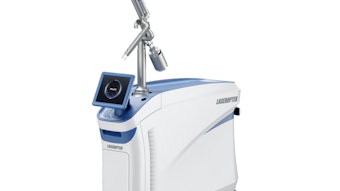Biopharmaceutical company Dermira announced topline results from its Phase 2b dose-ranging study for DRM01 in patients with facial acne vulgaris. DRM01 is a novel, small molecule designed to inhibit sebum production following topical application—it inhibits acetyl coenzyme-A carboxylase, an enzyme that plays an important role in the synthesis of fatty acids, which are essential components of the majority of sebum lipids.
The randomized, multicenter, double-blind, parallel-group, vehicle-controlled study—which included 420 patients each with a minimum of 20 inflammatory and 20 non-inflammatory lesions—evaluated the safety and efficacy of DRM01 and demonstrated statistically significant improvements in all primary endpoints compared to vehicle at the highest dose (7.5% twice daily) and in most primary endpoints at the two lower doses (7.5% once daily or 4.0% once daily). DRM01 was well tolerated with adverse events primarily mild or moderate in severity. The primary endpoints were absolute changes from baseline in inflammatory and non-inflammatory lesion counts and the proportion of patients achieving at least a two-point improvement from baseline on the five-point Investigator’s Global Assessment (IGA) scale. Each endpoint was measured at the end of a 12-week treatment period.
Overall, a dose response was observed for all three primary endpoints. At the 4.0% once-daily dose and 7.5% once-daily dose, DRM01 demonstrated statistically significant improvements in all three primary endpoints compared to the vehicle groups. The number of inflammatory lesions in patients treated with the highest dose of DRM01 (7.5% twice daily) was reduced by an average of 15.0 compared to 10.7 (55.6% to 40.0%) in patients in the vehicle groups. Non-inflammatory lesions were reduced by an average of 17.5 compared to 9.3 in patients (47.8% to 28.7%) in the vehicle groups. At the end of the 12-week treatment period, 25.9% of patients treated with this dosage achieved a successful improvement in the IGA score (minimum two-grade improvement) compared to 9.8% of patients in the combined vehicle group.
Based on these results, Dermira plans to initiate a Phase 3 program to evaluate the safety and efficacy of DRM01 as a potential treatment for acne in adult and adolescent patients. The initiation of this program is targeted for the first half of 2017, subject to an end-of-Phase 2 meeting with the U.S. Food and Drug Administration (FDA).











